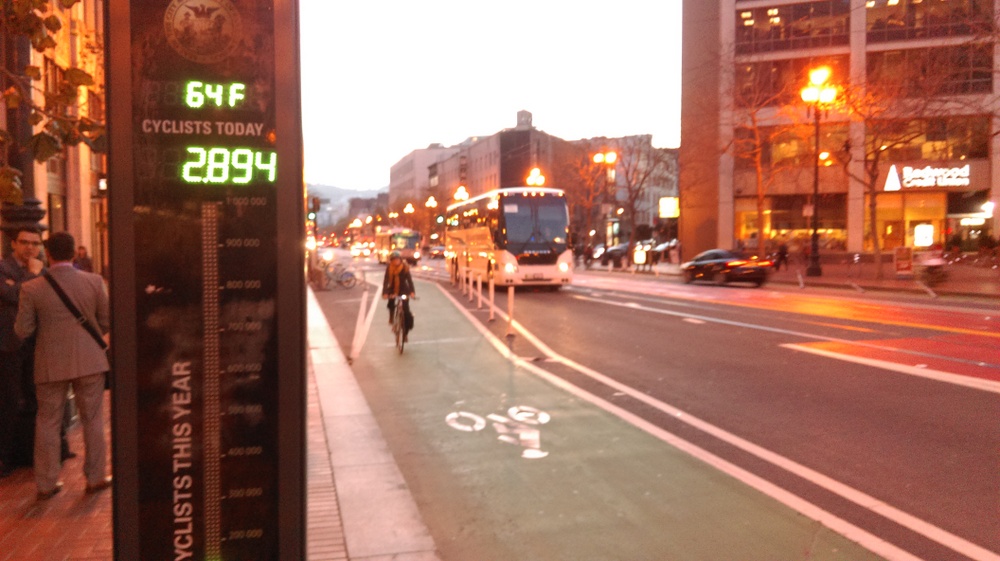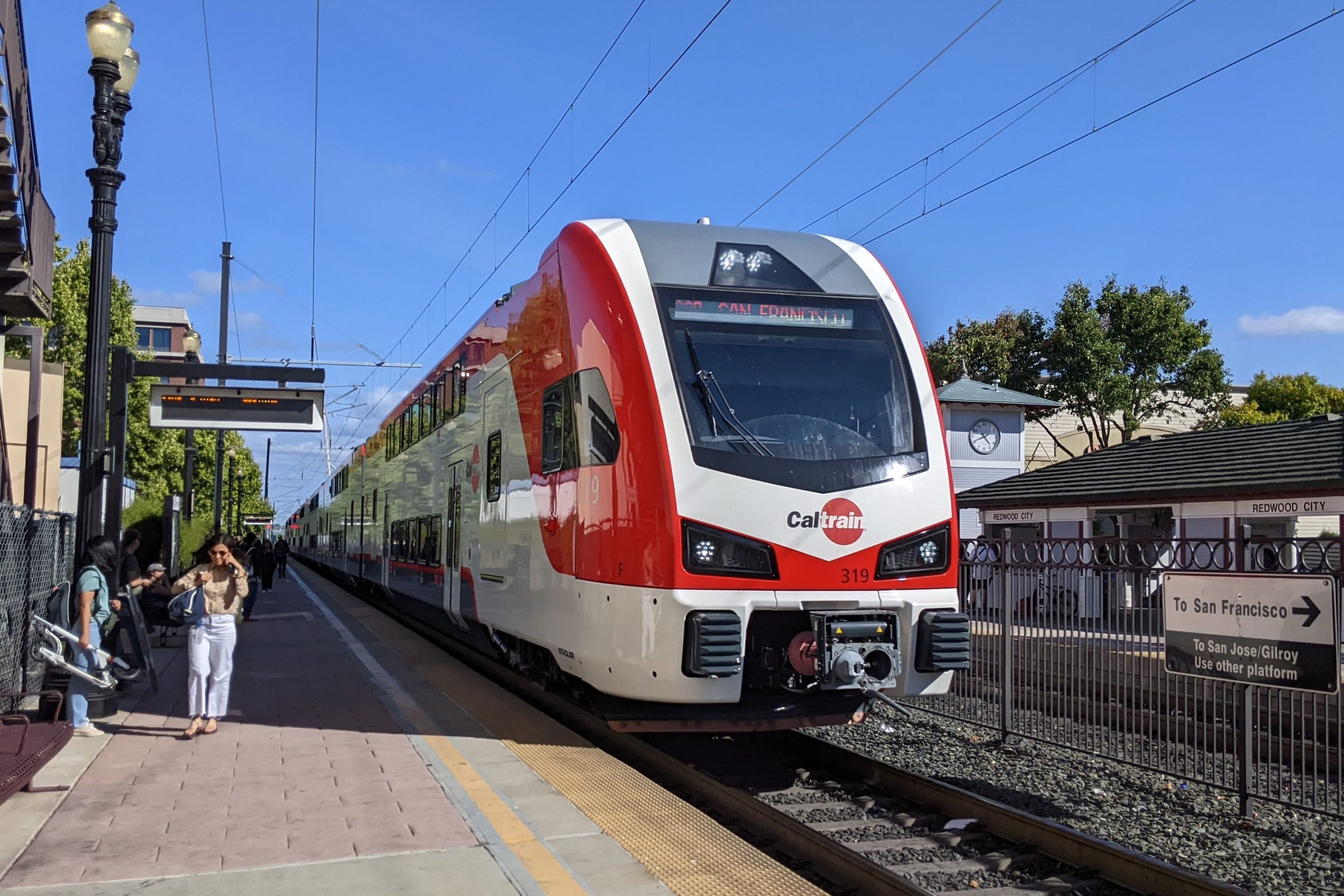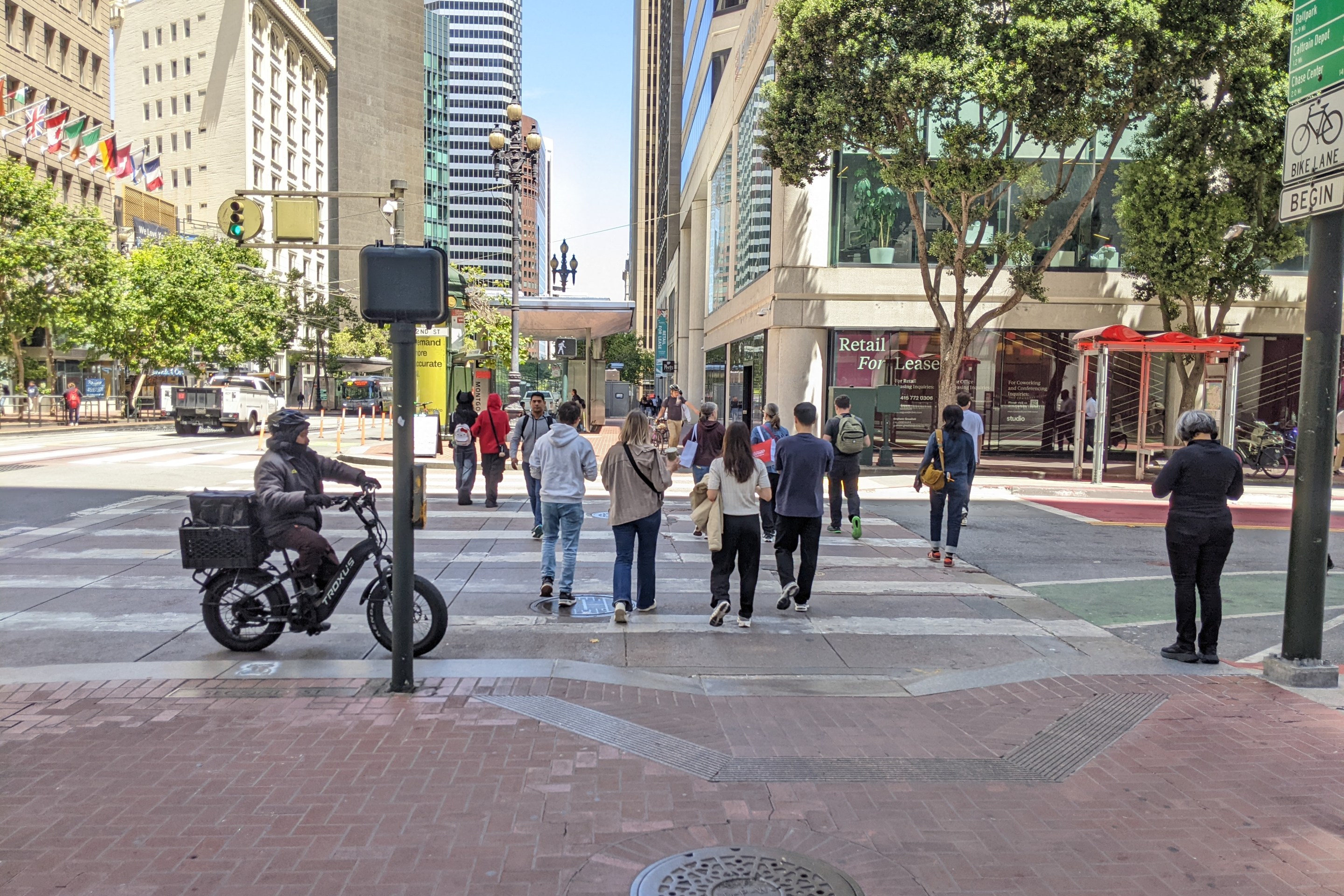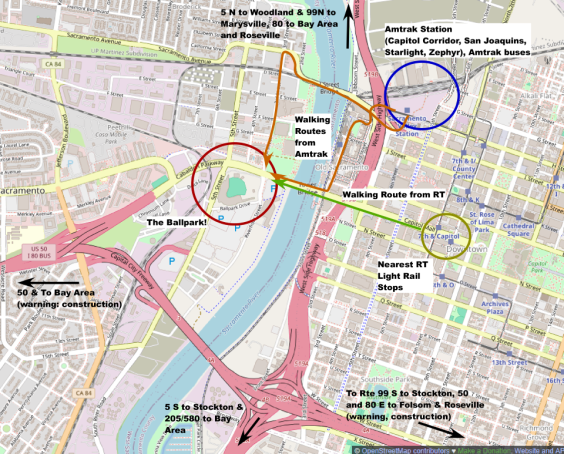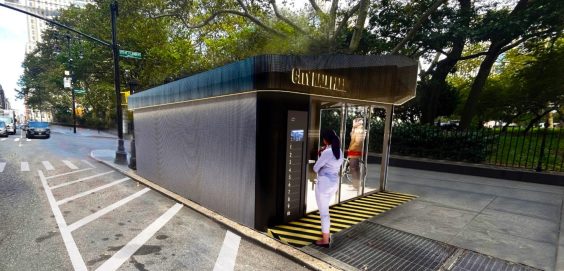The SFMTA plans to install three more bicycle counters with digital displays on busy biking streets. They will be placed "at visible locations on high volume bicycle corridors," though the exact spots haven't been finalized, according to a city planning document. "Potential locations include Market Street, Valencia Street, and the Embarcadero."
The SFMTA has already purchased the "bicycle barometers," as the city calls them, with two in storage and one more expected to arrive. They are scheduled to be installed between this August and February 2017, according to a report from the SF County Transportation Authority [PDF].
SF's first visible bike counter was activated on Bike to Work Day in May 2013, on the south side of Market Street between Ninth and 10th Streets. On an average weekday, it currently counts between 3,700 and 4,400 bike commuters in one direction. (It was discovered at the start of the year that the detector had been missing an estimated 1,000 daily riders, since many did not roll over the in-ground sensor.)
Visible bike counters, which have been installed in cities like Copenhagen, Portland, Seattle, and Montreal, are intended to encourage bicycling by displaying a number that ticks up every time someone rolls by, showing both the daily an annual total. The message to the public is that people on bikes count.
The SFMTA has also installed 24 invisible bike counters around the city, which use inductive loops installed in the pavement to detect bicycles but don't have a display feature. The data helps the SFMTA measure demand for bicycling and the effectiveness of bike lane improvements. The data for the Market counter, and an invisible counter on Fell at Divisadero Street, are displayed online.
The three new digital bike counters will cost $187,000 total for purchase, planning, installation, and two years of maintenance, according to the SFCTA report. They will be funded by $89,580 in SFMTA operating funds and $97,500 in Prop K sales tax funds, which must still be approved by the SFCTA Board. The Market counter was partially funded by a $20,000 grant from a locally-based online gaming company, and it's maintained by the Central Market Community Benefit District.
